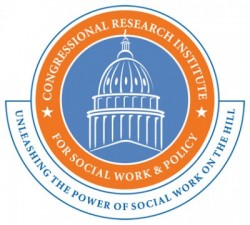I never took the time to consider what a Donald Trump presidency would mean for America. I was assured there was no way a plurality of American voters would elect to the nation’s highest office a person with no political or governmental experience.
Yet we find ourselves in a situation comparable to having a novice try to fly the most sophisticated aircraft ever made. Sure he can surround himself with knowledgeable people but he must assimilate and process enormous amounts of information and make difficult and consequential decisions in rapid succession. Yet, we have placed our future in the hands of a man with an aversion to reading anything other than magazine articles about himself. This is new territory for an American President and for the American people.
What unnerves me most is that Mr. Trump has no concrete plans or policies for making America great again—whatever that means. The little we know about his policy agenda—more supply-side tax cuts, plans to repeal the Affordable Care Act and promises to rescind anti-global warming agreements—is that, if successful, his policies will do great harm to the country and the middle class. Trump voters want change but apparently are not very interested in the details. They see Donald Trump as an outsider, an anti-establishment leader who will make good on his promises to solve all of the country’s problems while preserving the traditional values of a white Christian nation. On the other hand, Republicans were successful in demonizing Hillary Clinton for more than three decades and Trump presented her as the embodiment of a failed present-day establishment.

Donald Trump speaks during a campaign rally at the Treasure Island Casino in Las Vegas, Nevada June 18, 2016. REUTERS/David Becker
Time will tell if a Trump presidency will bring the changes white middle-class Americans are hoping for. The last time Republicans controlled both chambers of Congress and the White House was during the first six years of the George W. Bush administration. What did we get? Years of war, more supply-side tax cuts that exacerbated an already unequal distribution of economic resources, and the greatest financial crisis and economic recession since the Great Depression. During the Bush years, median household income fell 4.2 percent from $52,500 to $50,303, the number of people in poverty increased by 26.1 percent or 8.2 million people, and the number of Americans without health insurance rose by 20.6 percent from 38.4 to 46.3 million. The share of Americans receiving employer-based health insurance declined from 64.2 percent to 58.5 percent.
Democrats squandered their opportunity when they held majorities in the House of Representatives from 2007 until 2010, particularly during the first two years of President Barack Obama’s administration when they controlled both the House and the Senate. Passage of the Affordable Care Act was their most significant policy achievement but the bulk of the Bush tax cuts were left in place. Republicans regained control of Congress in 2010, stonewalled President Obama’s economic initiatives and blamed him for the country’s slow growth and the middle class’s continued economic stagnation. Voila! President Trump.
During the next two months until he is actually given the keys to the White House, there will be a constant stream of explanations for his successful candidacy. Many will see his victory as an indication of how badly many Americans want change—how much they are fed up with the status quo. Some will see a Trump presidency as a rejection of the notion of a third Obama term. There will be many justifications for Hillary Clinton’s loss. Some will point to the damage Comey’s letter to Congress did to weaken her campaign. Others might single out Bernie Sanders’ harsh characterization of Clinton as being indelibly tied to a malevolent establishment as the reason many young voters were unwilling to support her.
I sincerely hope that the trepidation and angst many are experiencing will be unfounded—that Donald Trump’s presidency will not be destructive but innocuous. My belief is that it will be at least two years until he gets up to speed for any semblance of trying to effectively govern and that the Republican Congress will resist efforts to amend its current policy preferences. Unfortunately, the Supreme Court will become more conservative, and Republicans will appoint scores of reactionary federal judges in place of appointments blocked during the Obama administration.
But now is not the time to despair. Now is time to redouble our efforts to encourage more social workers and our clients and their communities to be more civically engaged. The one thing that has not changed is the need for change. Visionary leadership is essential to future progress. We need to be thinking about readying ourselves for 2018 and 2020. Much is needed to be done to educate America about why choosing Donald Trump is a bad idea. Keep the faith!
Written By Charles E. Lewis Jr., Ph.D
No Time to Despair—Time to Go to Work! was originally published @ Charles Lewis – Congressional Research Institute for Social Work and Policy and has been syndicated with permission.
Our authors want to hear from you! Click to leave a comment
Related Posts






